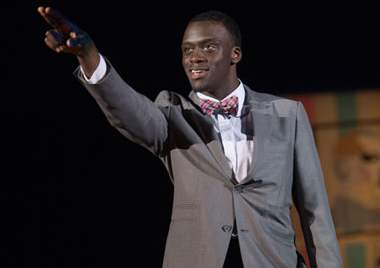Empowering Learners With Personalized Microcredentials, Stackable Badges
The University is enhancing its commitment to lifelong learning with digital badges, a tool that recognizes and authenticates the completion of microcredentials. The badges aim to support learners in their professional and personal development by showcasing achievements in short, focused…

 Ronald J. Taylor ’15 took to the stage at this year’s
Ronald J. Taylor ’15 took to the stage at this year’s